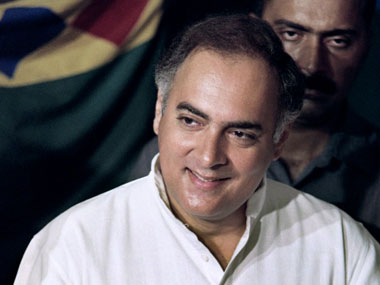New Delhi, Jun 15: Average temperature of India experienced a rise of 0.7 degree Celsius, along with decline in rainfall, significant increase in frequency of very severe cyclonic storms and droughts in over a decade due to human activities, the Ministry of Earth Sciences in its research report said.
The contentions were made in a report issued by the ministry on the impact of climate change. It will be published by Union Minister Harsh Vardhan on June 19.
According to the report, "Since the middle of the twentieth century, India witnessed rise in temperature; decrease in monsoon; rise in extreme temperature and rainfall, droughts, and sea levels; and increase intensity of severe cyclones.
The report, prepared by researchers of the Centre for Climate Change Research, a cell under The Ministry's Indian Institute of Tropical Meteorology, Pune, further stated that there is compelling scientific evidence that human activities have influenced these changes in regional climate.
India's average temperature has risen by around 0.7 degrees Celsius during 1901-2018, it said, adding that the rise is largely on account of GHG-induced warming and partially offset by forcing due to anthropogenic aerosols.
It states that the average temperature over India is projected to rise by 4.4 degrees Celsius, while the intensity of heat waves is likely to increase by 3-4 times by the end of the century.
In the 30-year period between 1986 and 2015, temperatures of the warmest day and the coldest night of the year have risen by about 0.63 degrees Celsius and 0.4 degree Celsius.
According to the report, by the end of the century, the temperatures of the warmest day and the coldest night are projected to rise by approximately 4.7 degrees Celsius and 5.5 degrees Celsius, respectively.
Alarmingly, sea surface temperature of the tropical Indian Ocean has also risen by one degrees Celsius on average during 1951-2015.
"The frequency of very severe cyclonic storms during the post-monsoon season has increased significantly (+1 event per decade) during the last two decades (2000-2018)," it added.
This came in the backdrop of Cyclone 'Amphan' and 'Nisarga' which made landfalls on May 20 and June 3 and killed several people, flattened villages, and destroyed farms.
"This is the first-ever climate change assessment report for India. This report will be very useful for policy makers, researchers, social scientists, economists, and students," said M. Rajeevan, secretary, the Ministry of Earth Sciences.
Besides this, the report also highlighted various other unnerving data on climate change in the country. Both the frequency and extent of droughts have increased significantly during 1951-2016.
The overall decrease of seasonal "summer monsoon rainfall" during the last 6-7 decades has led to an increased propensity for droughts over India.
"In particular, areas over central India, southwest coast, southern peninsula and north-eastern India have experienced more than 2 droughts per decade, on average, during this period. The area affected by drought has also increased by 1.3 per cent per decade over the same period."
The Hindu Kush Himalayas (HKH) also experienced a temperature rise of about 1.3 degree Celsius during 1951-2014.
Several areas of the Himalayas have experienced a declining trend in snowfall and also retreat of glaciers in recent decades. By the end of the twenty-first century, its annual mean surface temperature is projected to increase by about 5.2 degree Celsius.
The summer monsoon precipitation from June to September over India has also declined by around 6 per cent from 1951 to 2015, with notable decreases over the Indo-Gangetic Plains and the Western Ghats, the report further states.
 New Delhi, Apr 25: The Supreme Court Friday referred to a constitution bench the question whether the government can release a life term convict whose death sentence has been converted into life imprisonment and said that the seven conspirators in Rajiv Gandhi assassination case will not be released for now.
New Delhi, Apr 25: The Supreme Court Friday referred to a constitution bench the question whether the government can release a life term convict whose death sentence has been converted into life imprisonment and said that the seven conspirators in Rajiv Gandhi assassination case will not be released for now.





Comments
I am really enjoying the theme/design of your web
site. Do you ever run into any browser compatibility issues?
A few of my blog audience have complained about my blog not working correctly in Explorer but looks great in Firefox.
Do you have any suggestions to help fix this issue?
My website; free events: http://iphoneways.com
What's upp to all, the contents preesent aat this web
site are genuinely aweome forr people knowledge, well, keep up
the nice work fellows.
my page :: Clifton: https://geo-news-live-tv.blogspot.com/
Woah! I'm really enjoying the template/theme of this blog.
It's simple, yet effective. A lot of times it's hard to get that
\perfect balance\" between user friendliness and appearance.
I must say you have done a awesome job with this.
In addition, the blog loads super fast for me on Firefox.
Outstanding Blog!
Feel free to surf to my page - crack seo tools: http://manuelasolano4.unblog.fr/2015/12/27/suggestions-to-expand-your-s…"
Add new comment